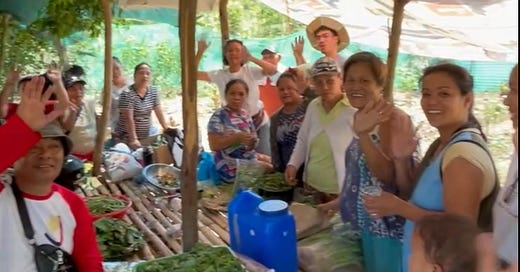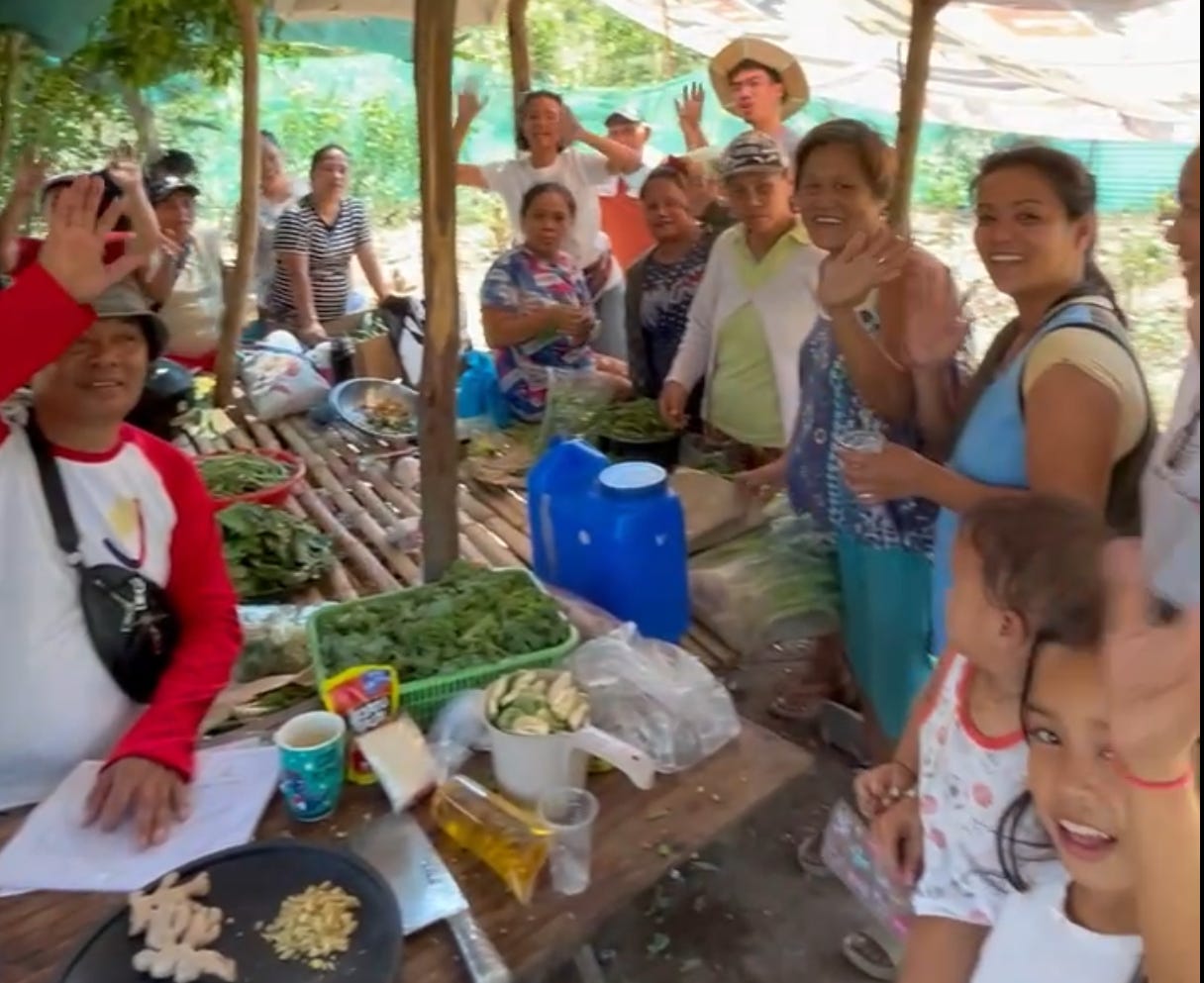Returning To The Garden & Nurturing My Activism
I’d forgotten what it meant to tend to my garden of hope, and to nurture my expression of activism, but eventually, I remembered I could come back to community and connection.
Note: I was recently asked to write something as a volunteer for Food Today, Food Tomorrow. Here’s what emerged. 🌱
TENDER SHOOTS
The garden needs tending Dried by the summer heat Eroded by the monsoon rains The vegetable beds are gone Forgotten by their farmhands But seeds remain Resistant, resilient Remembering how to sprout Beneath cracked, calloused earth And sticky, suffocating mud Tender shoots a sign of life persisting; Tender shoots giving off energy stronger than despair These tender shoots need Farmhands to protect them To weed and water everyday To harvest and share their gifts To plant and save more seeds Just as these tender shoots soften calloused farmhands ease suffocated lungs nourish empty bellies quench dried out hearts The garden is waiting
Called to the Garden
Hi, I’m Jen, a recovering activist.
I’m ashamed to admit that I’d forgotten what it meant to tend to my garden of hope, and to nurture my own expression of activism.
The old seed
I found my own meaningful expression of activism over a decade ago with Muni, where we grew a community through gatherings towards a more mindful, equitable and livable world. We put together meetups and pop-up markets, many of which had us collaborating with Good Food Community in our infant years all the way to pre-pubescence. Throughout this time, I had my own seasons of hope and hopelessness.
Over the course of a decade, we’ve all witnessed our country get battered by typhoons and tyrants. We survived the height of the pandemic through collective care and community pantries, held onto hope in a rose-tinted future, only for that to be stripped from us — with a new administration, and with a return to our ways of being pre-pandemic.
Perhaps you grieved losses both personal and political then, and perhaps you still grieve them now.
At some point in 2022, I’d forgotten what it meant to tend to my garden of hope, and to nurture my own expression of activism. My privilege allowed me to buffer or numb myself so I could stay “functional” and be a “productive” member of society. All while forgetting what it meant to be in community.
I saw faults in the system, and shortcomings in what I thought were ways out of the culture of dominance and oppression. Add to that global events, such as the genocide in Palestine, Congo, and Sudan, calls for ceasefire falling on deaf ears; and local events, such as the recent arrest of Edison Yu — and it can leave us feeling little hope in humanity and in our ability to make a difference.
The new seed
I’d forgotten that nature has cycles of growth and decay, that the best gardens are the ones that allow for different plants to flourish at different times, and that sometimes, the life cycle of one plant is over, and it’s time to plant anew. I’d isolated myself, thinking I needed to do my own inner work. I’d forgotten that inner work can happen, and is actually supported by community too. I’d forgotten what it was like to be in community. But I remembered I could reconnect with it.
I realize more clearly now that we don’t find resilience in numbing.
We find resilience in the full acceptance of what is, and in the creative pursuit of what can be, especially in community.
Sharing my uncertainty and grief with others doesn’t diminish my capacity for change and growth. It expands it.When we come back to community, we realize that the weight of our own and the world’s problems is not just for us to bear alone, and at the same time, our seemingly meager contribution in the grand scheme of things is not insignificant.
Heeding the call
I started dropping by Good Food Sundays late last year, and having conversations with old friends and new ones. I joined some workshops and community conversations as a participant. Earlier this year, I began hosting those community conversations — with Ugnayan Cards and Silent Book Club Manila.
I wanted to continue expanding my definition of community and perspectives on solidarity even more. I sought to support their work with Food Today, Food Tomorrow by helping raise funds, and by joining visits to the communities they serve — from the urban poor communities in Payatas and Bagong Silangan, Quezon City, to the political prisoners at the Correctional Institute for Women in Mandaluyong.
I felt a call back to community, and heeding that call is one of the best decisions I’ve made this year. While I’m still navigating my place in this garden, I’m reminded that we don’t find our place in sowing seeds of change by sitting back and waiting for answers, but by living the questions, as Rilke said.
What do I want to compost from my past experiences?
Which perspectives of mine need expanding? Which ones need pruning?
What if I didn’t have to bury myself alone with my worries and fears?
What does a good life or a thriving garden look like to me today?
What environments help me explore what it means to flourish, individually and collectively?
I join these FTFT community visits not because I think I can “save” anyone, but because they (the communities and the FTFT team) inspire me with their collective care for each other. They teach me what it means to persist, against the odds, so that everyone will have access to health, justice and dignity.
I don’t think my activism compares to theirs, and I have much to learn from them, but my expression of activism is still growing and evolving in this garden. We find our own ways and our own seasons to bloom and bear fruit.
But we need to remember that our presence here matters, that we have as much a role in the flourishing in this garden, as much as we need it to nourish us and remind us what it feels like to be alive.
The garden is waiting.
Food Today, Food Tomorrow (FTFT) is a grassroots food security initiative that builds collective power in solidarity with the urban poor and small farmers. We are currently raising funds for our community kitchens and community gardens in Quezon City. You can find out how you can pledge funds (most needed!), donate resources and volunteer to support the movement here.
You’re also invited to join the FTFT team at the Kusinang Bayan and Agroecology Workshop on June 29, Saturday, at Bagong Silangan, Quezon City. You may sign up through FTFT’s volunteer form to receive more info.
I won’t be able to join this time due to other commitments, but I look forward to learning about your experience! You can see some of my FTFT volunteer experiences below.






